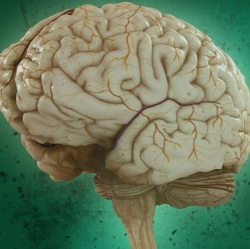
Bards from ancient times used to memorize entire books and histories. Now, we’re reduced to having to check a cell phone to look up a telephone number. A report, The Rise and Impact of Digital Amnesia, describes “Digital Amnesia: the experience of forgetting information that you trust a digital device to store and remember for you.”
“Across the United States, the study shows that an overwhelming number of consumers can easily admit their dependency on the Internet and devices as a tool for remembering,” the organization writes. “Almost all (91.2 percent) of those surveyed agreed that they use the Internet as an online extension of their brain. Almost half (44.0 percent) also admit that their smartphone serves as their memory, everything they need to recall and want to have easy access to is all on it.”
What’s more, we actually like it that way, Kaspersky asserts. “When faced with a question, half of U.S. consumers would turn to the Internet before trying to remember and 28.9 percent would forget an online fact as soon as they had used it.” Yes, it’s true. People don’t want to waste their valuable brain cells on a phone number.
And this isn’t just a millennial phenomenon, either. “Contrary to general assumptions, Digital Amnesia is not only affecting younger digital natives, the study found that it was equally and some times more prevalent in older age groups,” Kaspersky writes. “For example, respondents aged 45 and older are more likely to head straight for the Internet for the answer to a question, and write the fact down or choose to forget an online fact once they’ve used it on the assumption that it will always be out there somewhere.”
This isn’t because older people are less smart, it’s because they just have so much more stuff to remember. “There seems to be some evidence that older individuals have trouble retrieving information because they have more information to sort through,” notes Dr. Kathryn Mills, UCL Institute of Cognitive Neuroscience, University College London, in the study. “In theory, this could mean that ‘offloading’ some of our information to a digital device could make it easier to recall the information we have retained.”
After all, isn’t that the idea behind so many of today’s computing concepts, ranging from enterprise content management (ECM) systems to big data? That the computer can keep much more of this stuff in its brain than we can? That way, we can spend our time using information, instead of remembering it.
People are even beginning to adapt to these “auxiliary brains.” A seminal paper published in Science in 2011 detailed research by Harvard and the Universities of Columbia and Wisconsin into memory and Internet use, Kaspersky notes. “The study showed that the way young people in the U.S. remembered information was changing as a result of being able to find information online: they retained fewer facts but could readily recall where the information was stored. The researchers called this ‘the Google effect.’”
But is this a bad thing? Not necessarily. Instead, we’re just using technology to assist us in remembering in the same way that we use technology to help us with other things, writes Hermann Mauer in Communications of the ACM.
